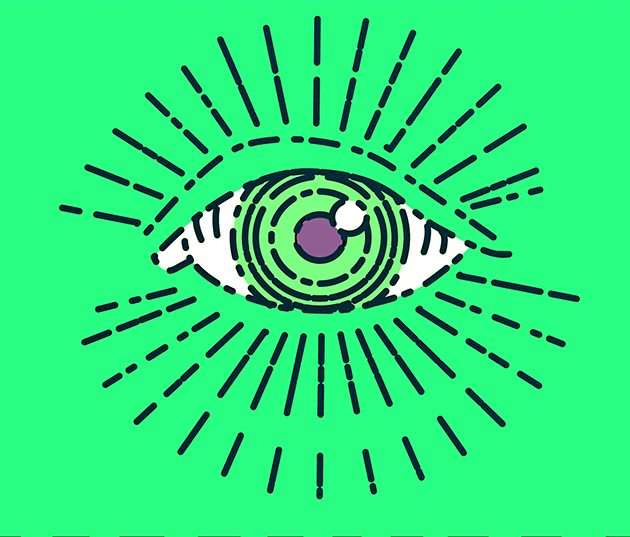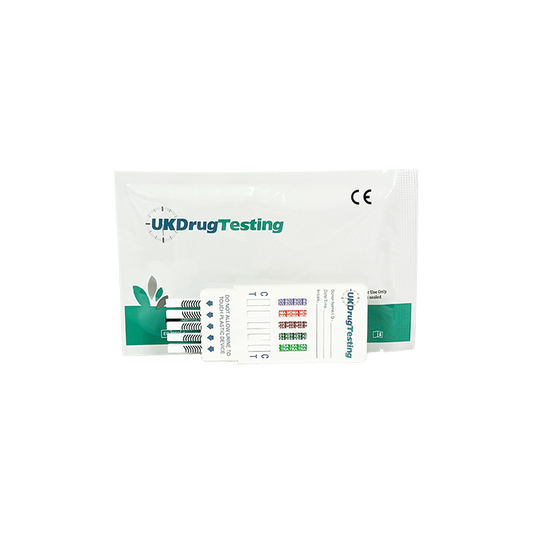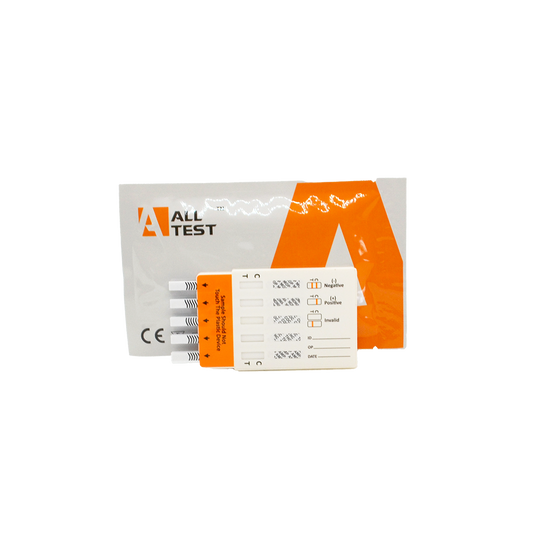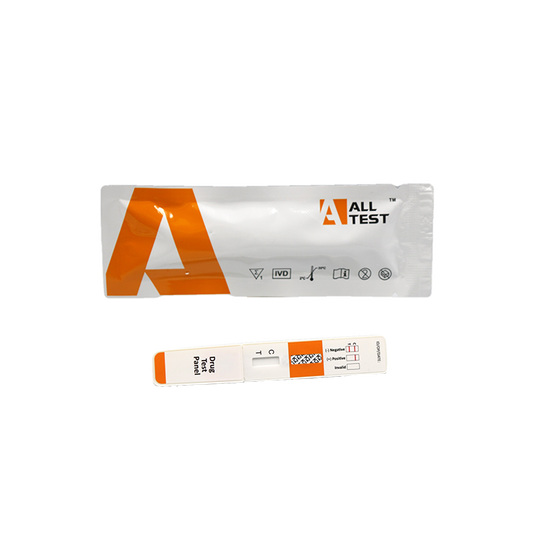Best drug tests for Cannabis
Marijuana drug tests
-
Urine Drug Test Strips Cannabis / 5 Tests
Regular price £2.69 GBPRegular priceUnit price per -
Urine Drug Test Strips Cannabis Ultra 20ng ⛛ / 5 Tests
Regular price £9.99 GBPRegular priceUnit price per -
Urine Drug Test Strips Synthetic Cannabis (K2/K3) / 5 Tests
Regular price £11.75 GBPRegular priceUnit price per -
Urine Multi Drug Panel (UKDrugTesting) Party (4 Drugs) ⛛ / 1 Test
Regular price £2.75 GBPRegular priceUnit price per

THC - Cannabis
UK Class B Illegal Drug
Cannabis stands as the most commonly used illicit substance in the United Kingdom, whether for recreational or medical purposes. Legally, this drug can only be prescribed by the NHS or a registered private physician, and then, strictly for severe conditions where clear clinical benefits have been established. Cannabis THC is also the most common drug that is drug tested for.
Medical research and global attitudes regarding Cannabis use, suggest a potential future for its decriminalisation, with the UK's Green Party presently incorporating this stance within their political agenda. However, should decriminalisation occur, Cannabis would still be subject to widespread drug testing, akin to alcohol, owing to its potential impairments on activities such as driving, operating machinery, and workplace performance and productivity.
As such attempting to drive a vehicle after smoking Cannabis (medical or recreational) would still be illegal under UK drug and driving law.
Absorption
How long does it take to feel the effects of cannabis?
Absorption of THC, the main active ingredient in Cannabis, will vary between individuals as with any consumed drug, but here is a general guide.
- When Smoked (1 - 2 Minutes)
- When Eaten (45+ Minutes Average)
Duration
How long do the effects of Cannabis last?
Like most drugs Cannabis has a peak where its effects are most powerful. Again this will vary from individual to individual but here is a rough guide.
- When Smoked (10-30 Minutes)
- When Eaten (2 -4 Hours)
Metabolism
How long is Cannabis use detectable in the body?
The main active ingredient in Cannabis, that is tested for on a drug test is THC.
THC can be detected on a drug test for the following times:
- Urine (3- 30 days may be longer with ultra sensitive THC drug tests)
- Saliva (24 - 72 Hours)
- Blood (24 - 48 Hours)
- Hair (Up to 90 Days)
Other common names for Cannabis
Frequently asked questions about Cannabis
Why do people smoke Cannabis?
Recreational Use
Many people enjoy the feeling of being stoned or high, different strains of cannabis can provide different highs.
Medical Use
Cannabis can be used to treat severe epilepsy, MS or nausea caused by chemotherapy
Is Cannabis dangerous?
All drugs carry risks, Cannabis is no exception. Cannabis is known to have many mental health side effects, including: mood swings, disturbed sleep and lack of motivation. Smoking cannabis can also create difficulties breathing and increases the risk of lung cancer.
The majority of users will not encounter serious mental health problems with light recreational use of Cannabis, however extreme heavy use cases can trigger induced psychosis with symptoms such as paranoid delusions.
Many users report the drug having unwanted effects such as increased anxiety and inducing panic attacks.
Cannabis remains an illegal drug in the UK with possession getting you up to 5 years in prison, an unlimited fine or both.
Is Cannabis addictive?
Cannabis is not thought to be chemically addictive, however heavy users can become dependant on the drug to perform everyday tasks such as sleeping, with many users suggesting they need the drug to feel "normal"
Identifying the signs of Cannabis use
Cannabis possesses a distinct aroma, earning it the colloquial name 'skunk.' Some liken its fragrance to that of popular lager beers like Stella Artois.
Cannabis users may also exhibit potential side effects, including mood fluctuations, bloodshot or glassy eyes, fatigue, and weight gain.
Should i drug test for cannabis?
Workplace
Yes, In the UK, cannabis is classified as a Class B drug under the Misuse of Drugs Act 1971. Possession, production, or supply is illegal except in specific cases involving medical cannabis, which is tightly regulated. Employers have the right to maintain a drug-free workplace and are legally obligated to ensure the safety of their employees under the Health and Safety at Work Act 1974.
Home
Deciding whether to test for cannabis at home depends on your specific circumstances and goals. Home testing can be a helpful option if you are concerned about cannabis use affecting safety, health, or family dynamics. For parents, it may provide clarity if they suspect a child is using cannabis, while for individuals, it can help monitor personal consumption, especially in situations like preparing for a workplace test. However, it’s essential to approach testing thoughtfully, as it can impact trust and relationships. Open communication and understanding are often just as important as the test itself, especially when addressing the reasons behind use.
Is Cannabis a gateway drug?
The idea of cannabis being a "gateway drug" is a long-debated topic. Some argue that using cannabis can lead to experimentation with more harmful substances due to exposure to drug-using environments or its effects on the brain's reward system. Studies suggest that those who use cannabis particularly at a young age may have a higher likelihood of trying harder drugs like cocaine or heroin. However, this is not a straightforward cause and effect relationship.
Other factors, such as genetics, mental health, socioeconomic circumstances, and peer influence, often play a larger role in determining substance use patterns. While cannabis use may coincide with progression to other drugs for some, many users do not go on to use harder substances. If you're concerned about cannabis use potentially leading to further drug experimentation, open dialogue and support are key steps in addressing the underlying reasons for substance use.
Cannabis Drug Information - dtk
Last Updated 23/10/2023
THC Drug Tests
Drug tests for weed
-
Urine Drug Test Strips
Regular price From £2.40 GBPRegular priceUnit price per£14.99 GBPSale price From £2.40 GBPSale -
Urine Multi Drug Panel (UKDrugTesting)
Regular price From £2.75 GBPRegular priceUnit price per -
Urine Multi Drug Panel (ALLTEST)
Regular price From £2.80 GBPRegular priceUnit price per -
Residue Drug Test Kit (Powder/Surface)
Regular price From £3.49 GBPRegular priceUnit price per
Frequently asked questions about THC
How long does weed (pot) stay in urine?
The length of time cannabis stays in your urine depends on several factors, including frequency of use, body composition, and the sensitivity of the drug test being used to detect THC.
Here's a general guide to how long weed stays in urine:
Occasional users
- 1-3 Days: For someone who uses cannabis once or twice, THC metabolites (the compounds detected in urine tests) are usually cleared within a few days.
Moderate Users
- 5-7 Days: For people who use cannabis a few times a week, THC metabolites might be detectable for up to a week.
Frequent Users
- 10-15 Days: Regular users may have THC metabolites in their system for up to two weeks.
Heavy/Chronic Users
- 30+ Days: For daily or very heavy users, THC metabolites can linger in urine for a month or longer, depending on usage and metabolism.
Factors That Influence Detection Time
- Body Fat: THC is stored in fat cells, so people with higher body fat may retain THC metabolites longer.
- Metabolism: Faster metabolism clears THC more quickly.
- Hydration Levels: Dehydration can concentrate metabolites in urine.
- Test Sensitivity: Some tests are more sensitive and can detect lower levels of THC metabolites.
If you're concerned about a drug test, focusing on hydration, exercise, and a healthy diet may help speed up the elimination process, but there are no guaranteed methods to "flush" THC from your system quickly.





